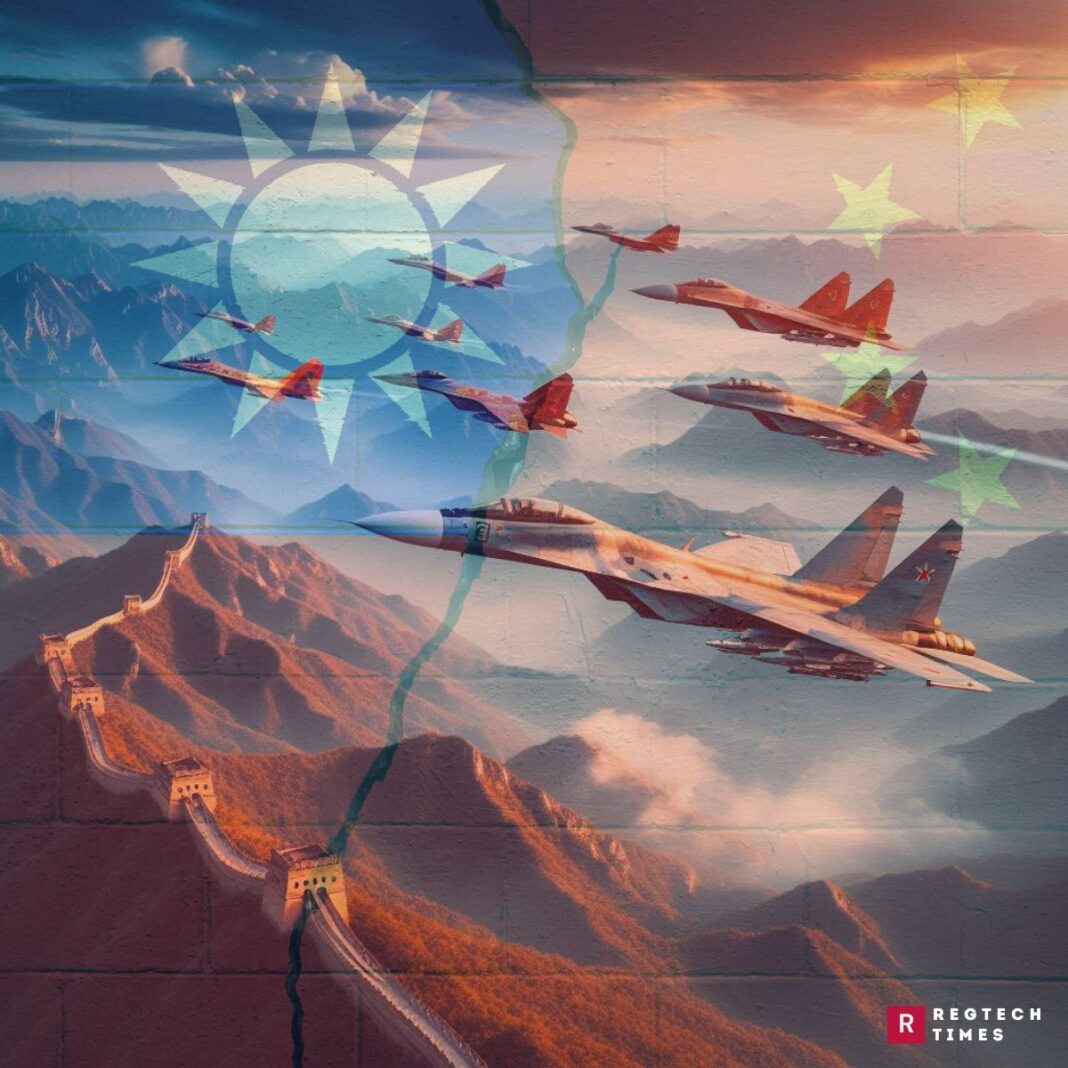Amidst escalating tensions, Taiwan has reported the detection of a significant number of Chinese military aircraft encircling the island within a span of 24 hours. According to Taiwan’s Ministry of National Defense, the aircraft included Su-30 and J-10 fighters.
The ministry also revealed that these planes were flying with Chinese warships on “joint combat readiness patrols,” implying that Beijing is coordinating efforts to establish dominance in the area. This move demonstrates China’s all-encompassing strategy for retaining control over Taiwan and the waterways around it.
Taiwan immediately dispatched its own forces to monitor the situation in response to these provocative activities. In the face of escalating regional tensions, Taiwan has shown its commitment to preserving its sovereignty and territorial integrity by deploying patrol aircraft, Navy boats, and coastal missile systems.
These occurrences are indicative of ongoing military exercises in the Taiwan Strait; the number of Chinese airplanes circling Taiwan on a daily basis reached a record high last month. These efforts are categorized by experts as “grey zone” activities since they don’t exactly qualify as acts of war but nonetheless serve to impose pressure and demonstrate dominance over Taiwan.
Since President Tsai Ing-wen’s election in 2016, when she upheld Taiwan’s status as “already independent,” Beijing has become increasingly resistant to the frequency of these measures. Recent Taiwanese presidential election tensions increased after Vice President Lai Ching-te, who Beijing viewed negatively, won the race.
Discussions between Chinese leader Xi Jinping and US President Joe Biden have focused heavily on the Taiwan problem, highlighting the significance of preserving peace and stability across the Taiwan Strait. To China’s dismay, the United States continues to be an important ally of Taiwan, offering both diplomatic recognition and military backing.
Meanwhile, China presses international organizations to bar Taiwan from participating and steps up its efforts to diplomatically isolate Taiwan by refusing to build relationships with nations that recognize it.
In addition to these geopolitical difficulties, Taiwan has to deal with natural calamities like the most recent 7.4-magnitude earthquake. The greatest earthquake to strike Taiwan in 25 years brought down buildings in Hualien, set off landslides in the country’s hilly interior, and sent shockwaves all the way to Taipei, the capital.
Taiwan manages to weather natural calamities and geopolitical pressures with resoluteness and resilience in spite of these obstacles. In order to maintain calm in the area, however, the intensifying hostilities with China highlight the necessity of constant monitoring and international support.



